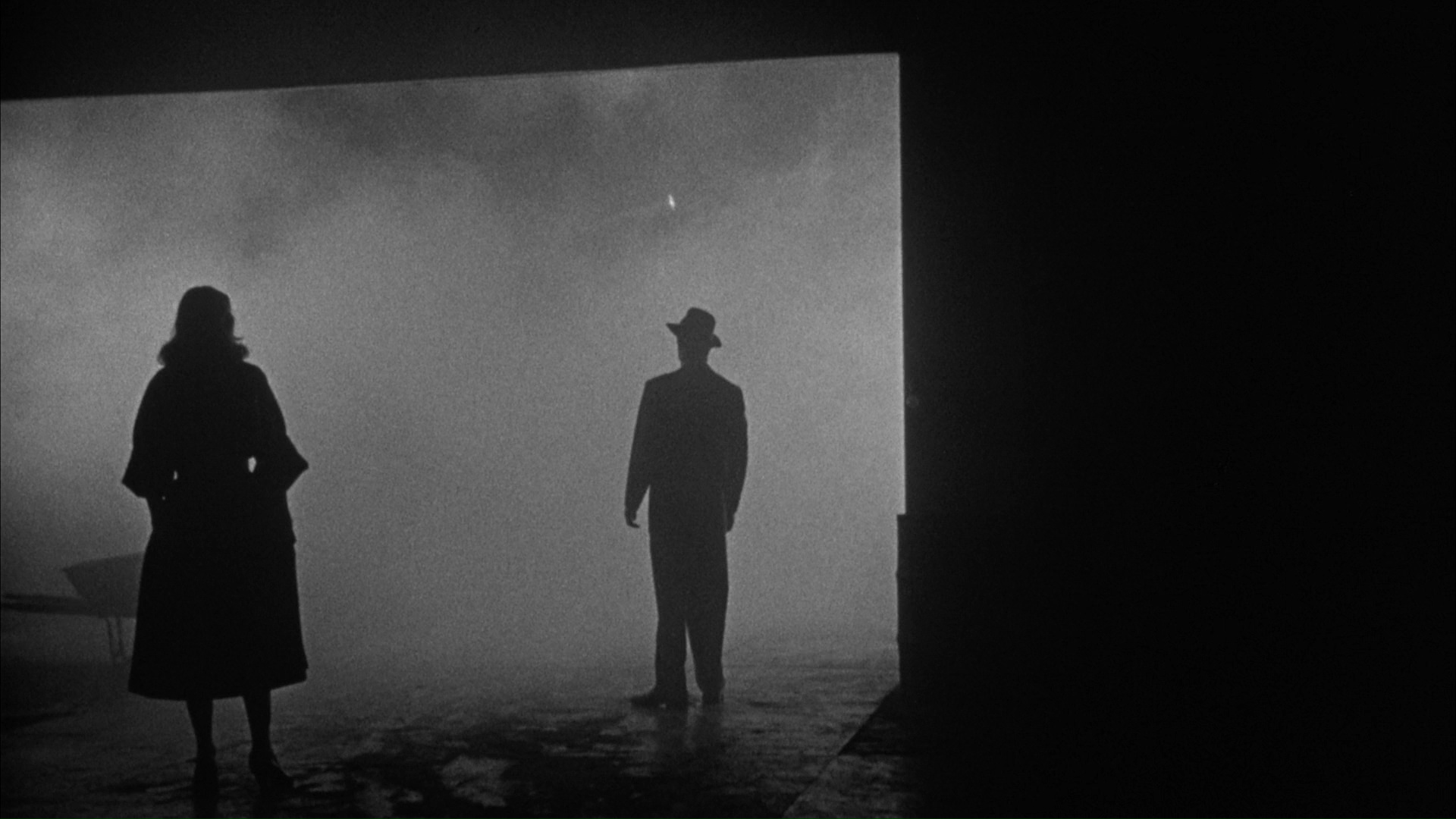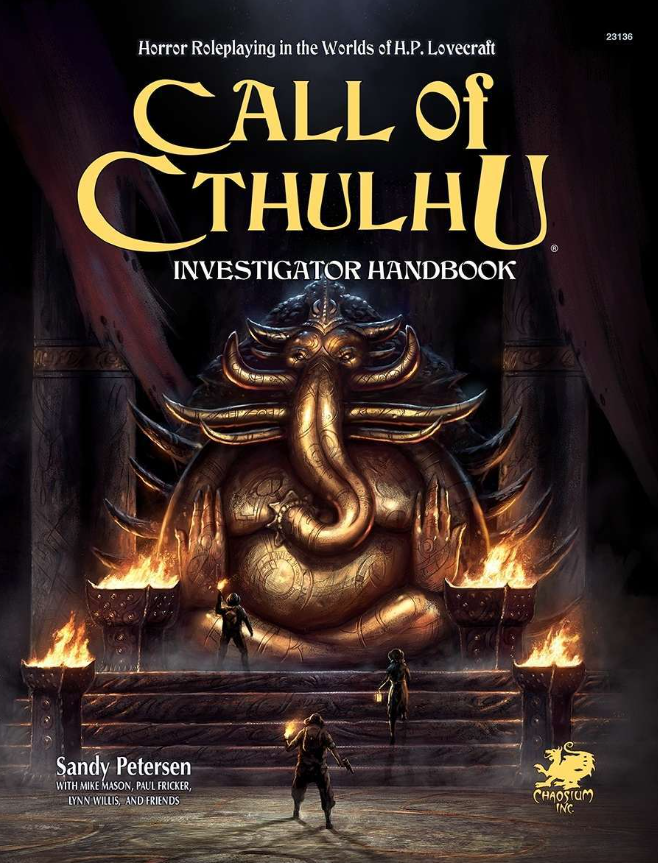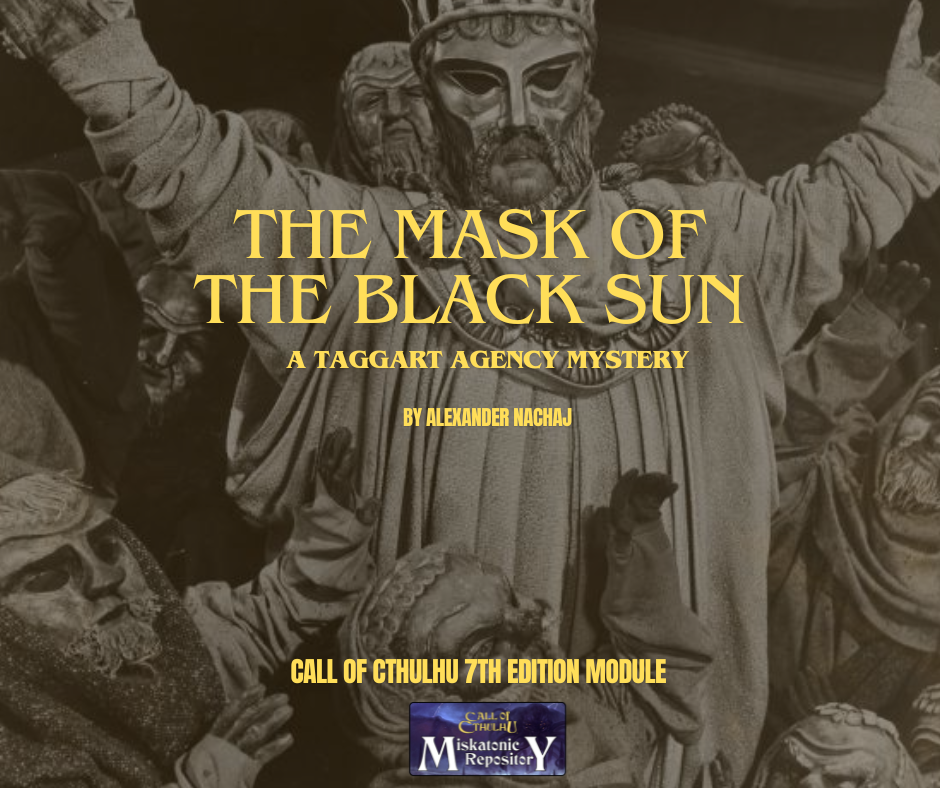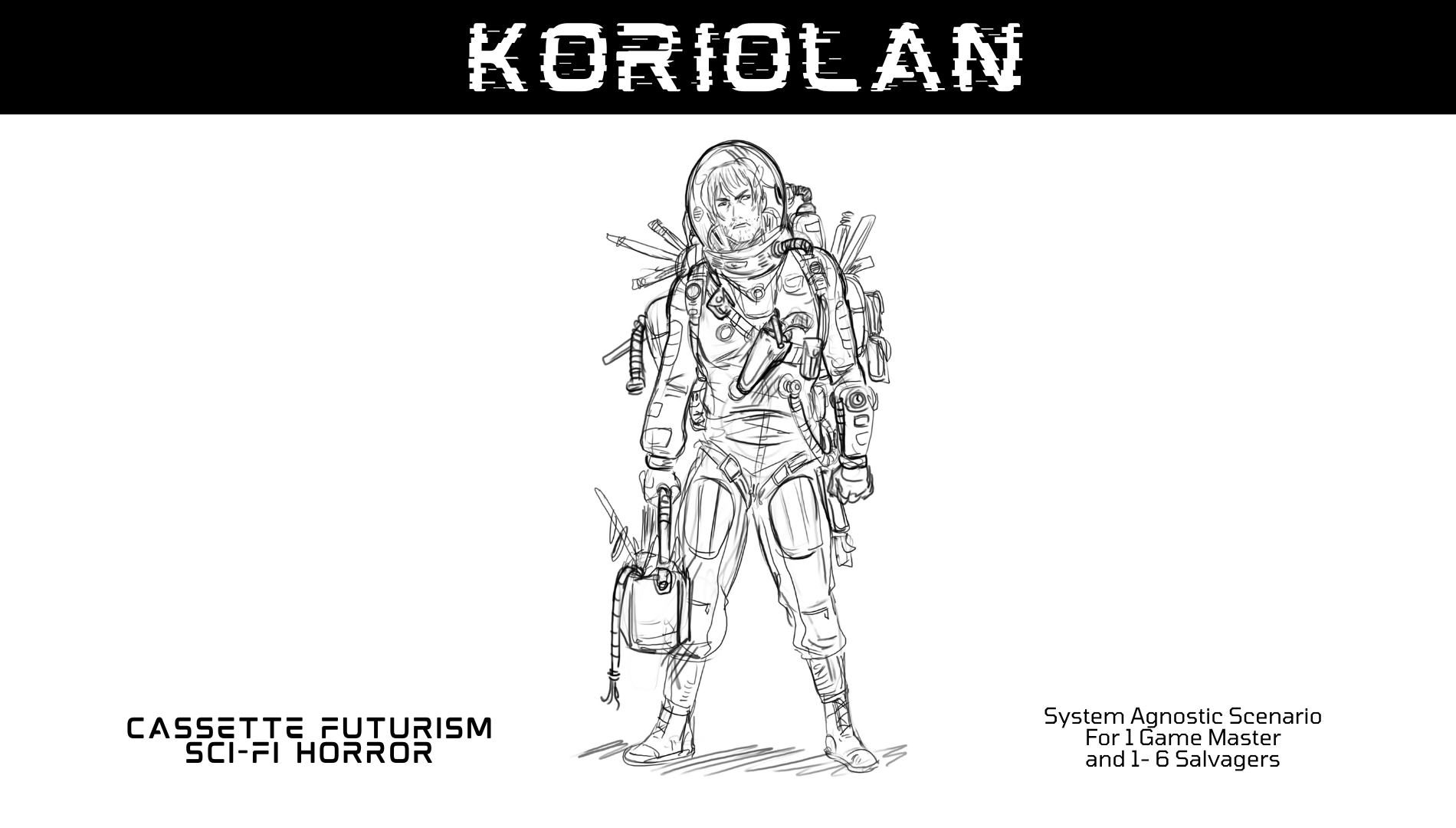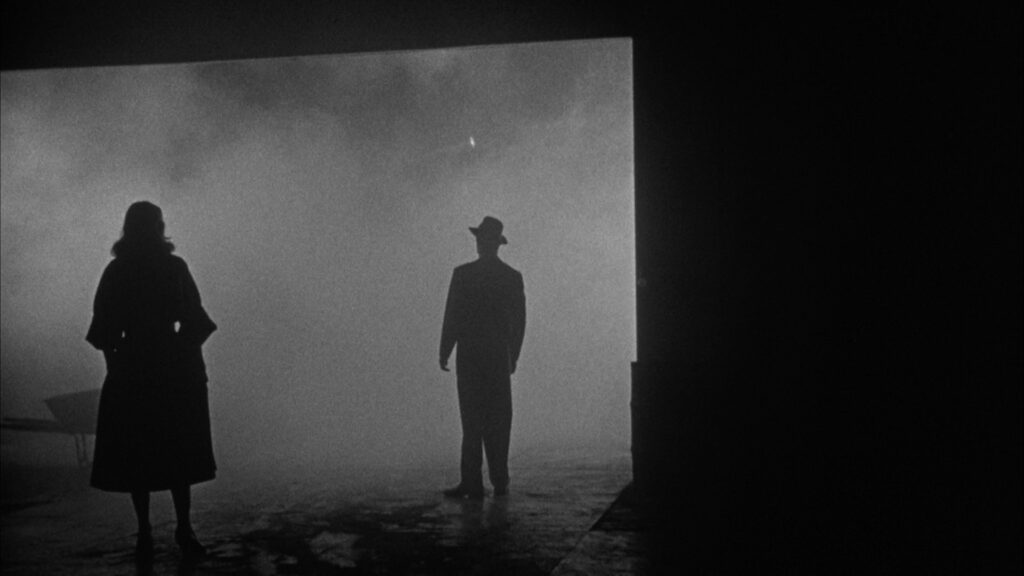
One afternoon, while reclining with a bottle of whiskey at the local detective agency where you’re employed, an unexpected telegram lands on your desk. It’s from a wealthy heiress, reporting that a mysterious family heirloom has gone missing. Normally, her insurance covers these kinds of things, but since strange misfortunes seem to follow the artifact, she thought it would better to hire someone to track it down. And besides, the salary could really help pay off the brand new automobile and typewriter you just picked up…
After meeting the heiress and accepting the job, you track down the heirloom to an old manner where it’s current proprietor paid a handsome fee to claim it. However, along the investigation, the heirloom passed several hands, each of which suffered some misfortune or another. It almost seems like a public service to retrieve it from the thieves at this point, but as you approach the run down estate, you notice how the trees don’t seem to move right in the wind, and the shadows dance with a mind of their own. Worse, you can’t help shake the feeling you’re being watched.
Pen & paper gaming and tabletop RPGs are having something of a renaissance these days.
The Pandemic and the lockdowns that followed, while they sucked, nevertheless opened the doors for plenty of us us to dust off our old rulebooks and fire up game sessions over Discord or Roll20 and other similar apps.
So many of us either got back into them or started them for the first time that, according to word on the street, Wizards of the Coast, the current publisher of Dungeons & Dragons, saw a 33% increase in sales during 2020 and by end of 2021 apparently 50 million people worldwide had played one version of their tabletop RPGs or another.
Naturally, if you’ve even been on the internet since then, it’s pretty much no secret that Dungeons & Dragons is the most beloved tabletop RPG out there these days – and that pen and paper RPGs are now in the mainstream.
Not bad for game system that was still considered weird and one step too far into nerdiness even back in the 90s when I first started playing.
In any event, with all this focus on the current cultural zeitgeist Dungeons & Dragons is having, it might be easy to neglect the fact that it’s not the only tabletop RPG system out there.
While there are similar games, such as Pathfinder (aka Dungeon & Dragons but for your older brother), the ones that I’m really digging these days are the systems that take elements that are familiar (such as needed a couple of players and a game master) and then spinning it into something entirely different, and often weirder.
The best of these, from my experience, is the horror-focused and Lovecraft-infused Call of Cthulhu tabletop RPG. It’s a tabletop which – if you’re a veteran Dungeons & Dragons player looking for something new – is well worth your time not only for a night off, but a whole campaign to dive into.
What is the Call of Cthulhu RPG?
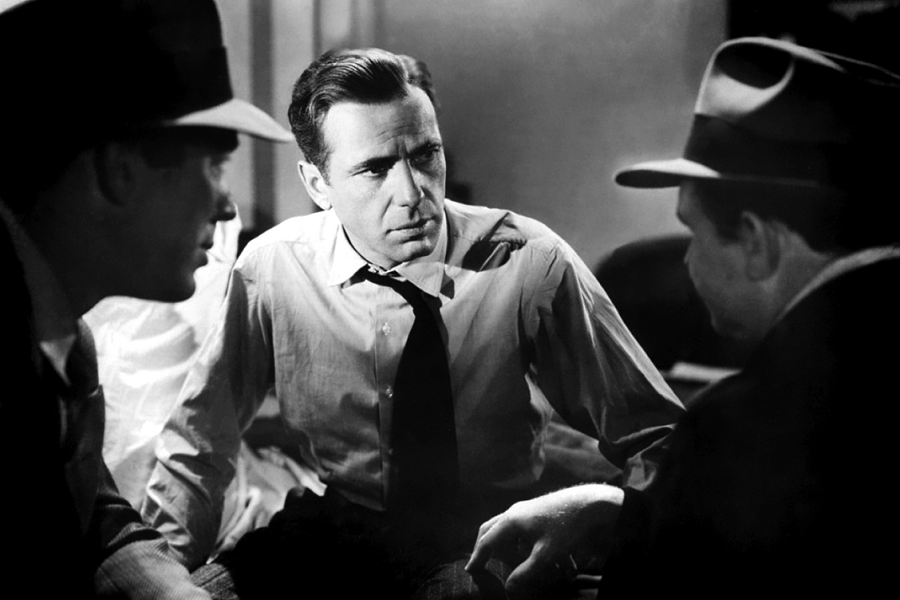
Call of Cthulhu RPG is a tabletop, pen and paper RPG released by Chaosium. It’s currently in its 7th edition and is based on the Basic Role-Playing (BRP) system (also maintained by Chaosium).
In terms of overall setup, its similar to Dungeons & Dragons in that involves a game master (here called the Keeper) who runs the sessions and orchestrates the world for the players (called the Investigators).
As the name of the role suggests, Investigators typically spend the game sessions trying to solve strange mysterious – often fraught with dangers that affect both the body and the mind.
A single night might involve combat, investigative, and narrative segments, each of which are played out on pre-made boards, digital whiteboards, or hand-drawn maps on graph paper.
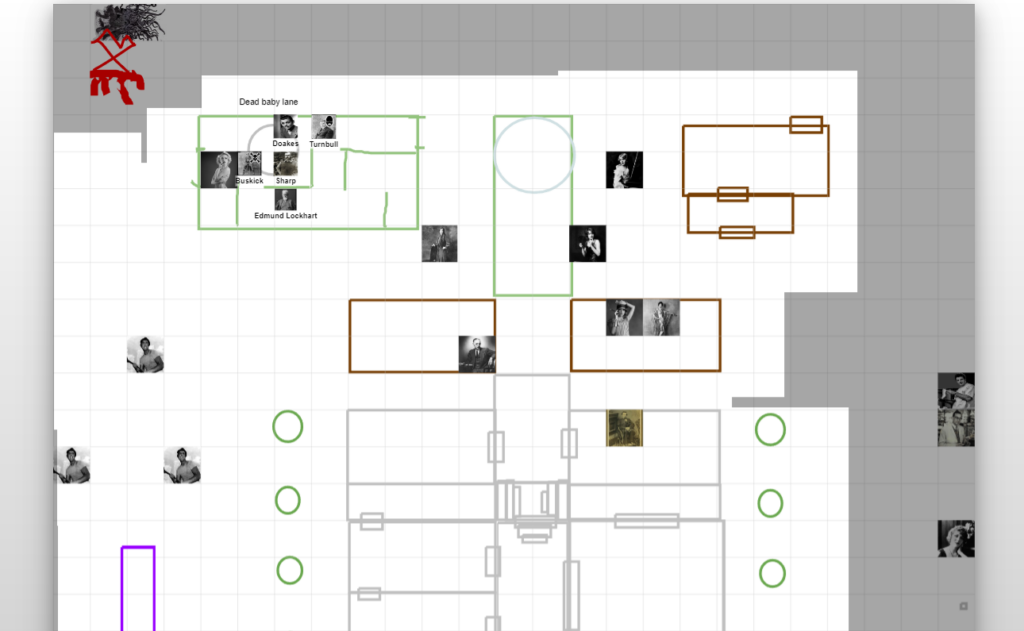
Similar to other tabletop games, there’s an element of chance to the whole thing (that often feels like gambling) where Dice Rolls determine the results of actions and decide the outcomes of choices.
However, that’s about as far the similarities go if you’re familiar with the basics of D&D.
In terms of actual gameplay experience, you’ll find that a typical Call of Cthulhu RPG session feels vastly different from a night of Dungeons & Dragons.
Notably, while D&D has an extensive library of settings, monsters, and characters to draw upon from the various creators of the Forgotten Realms to Eberron to Planescape, Call of Cthulhu also has an expansive game world only it’s been drawn from the works of HP Lovecraft and his acolytes.
The Lovecraft-Inspired Tabletop RPG System
Lovecraft, for those who may heard the name but know little more, was an early 20th century American author who is widely accepted to have been the most influential cosmic horror writer – a horror subgenre that prominent uses the unknowable and madness to develop its themes.

He was a complicated figure with an arguably more complicated legacy, owing to his misanthropic nature and, to put it lightly, his socially inappropriate sense of humour – which was even pretty off-putting for early 20th century folks.
However, and fortunately, he was a better writer than he was at being a party guest, and the popularity of his almost countless stories has endured to the point that we have the word “Lovecraftian” to describe works inspired by him.
What are some examples of Lovecraftian works?
Well, if you’re at all familiar with stories like The Horror from the Hills, movies like Reanimator or In the Mouth of Madness, or images of monstrous creatures covered in horrific tentacles, such as the titular Cthulhu (who is apparently no stranger to appearing in movies and memes), you’ll have a rough idea of some of the weird things he either creator or inspired.
Even Netflix’s Stranger Things is very much inspired by his work.
One of his most famous stories was The Call of Cthulhu and its after this story that the RPG system was named and which his larger “Cthulhu Mythos” exists as a sort of shared universe.

In this, it’s probably a good time to note that Lovecraft isn’t the only Lovecraftian author or even author using the same canon of monsters and stranger things.
Others such as August Derleth and the later Frank Belknap Long have also written extensively using the same universe and expanding the lore of the many creatures Lovecraft only hinted at or introduced.
There are also numerous Lovecraft focused publications that continue to release works in the same genre and universe (and where I’ve even had a story published previously, in Lovecraftiana).
That said, there’s an expansive and still evolving collection of material upon which this system is based.
How is Call of Cthulhu Different from Dungeons & Dragons?
At it’s simplest, it’s all about the dice.
D&D revolves around rolling D20s and checking the values against the ones set by the Dungeon Master, while Call of Cthulhu relies on D100s and checking the values against your own skills.
Beyond the numbers, one of the most obvious differences is in the setting and the way the stories are told.
Setting and narrative

Dungeons & Dragons primarily (but not exclusively) operates in High Fantasy settings populated by humans, dwarves, orks, and goblins, with player characters often following fantasy archetypes of being warriors, wizards, rogues, and rangers, and their ilk.
Adventures in D&D often begin in taverns and move into all manner of dungeon-crawling, medieval battles, bustling castles, and creepy Gnoll-infested fortresses as the players seek treasure, defeat villains, and rescue villagers.
For many of us, Dungeons & Dragons is mostly about building a powerful player character over a number of levels, all the while gaining better gear, more powerful spells and abilities, to fight bigger and badder opponents.
There are good narrative settings and campaigns in that game system, but there are just as many (if not more) combat-focused dungeon runs and excursions where players never need role-play and simply focus on their builds.
Call of Cthulhu, by contrast, also has many settings but the most quintessential of them is a sort of rain-slick 1920s New England.
In this regard, settings in Call of Cthulhu very much take inspiration from Film Noir – classical detective cinema with morally ambiguous characters, who sometimes have to make difficut choices.
Action typically takes place in small cities, coastal villages, mysterious islands, or ancient ritual sites off in the woods. Players often assume the role of detectives or private investigators, tracking clues to solve one mystery or another that often ends with some horrible reveal.
As such, the main thrust of most sessions is about solving the mystery at the heart of the scenario, and just plain making it out alive or with one’s sanity intact.
There is character progression, and it’s based off a “the more you use, the more you improve” kind of approach, but death and madness are always around the corner and player characters are unlikely to last a full campaign unless they’re very cautious.
By the end of a story or evening, players might have earned a small paycheck, maybe improved a skill, but they often carry on fundamentally the same person, if slightly broken by their experiences.
Combat and stakes
From personal experience, I’ve often felt that after a certain point, Dungeons & Dragons suffers from power-creep. Unless you’re a very stingy DM, crafty players will often become nigh-unstoppable killing machines by a certain level.
On the plus side, this means you get to toss even more fearsome monsters at them, but I find it also lessens some of the experience as that early game fear of powerful encounters now requires more planning and forethought (instead of, say, how the party might fare in their first encounter against a handful of goblins).
In Call of Cthulhu, despite allowing players to have firearms, every single encounter with an opponent or obstacle is high stakes. When players put themselves in a tricky situation, it always feels unsafe because one wrong roll can lead to permanent dismemberment, lifelong hallucinations, or just plain.

This is one of the areas I feel that Call of Cthulhu really differs and really shines because of that difference. The terror of facing a single monster or mobster with a shotgun is perpetually recreated because the monsters are always unpredictable and shotguns never stop being deadly.
Because of the high stakes in all of its encounters, it causes players to act very differently than in Dungeons & Dragons, where pulling a Leeroy Jenkins and going all gung-ho on a mob works most of the time.
You’ll find that Cthulhu players confer a lot more before making decisions, that they try to talk their way out of sticky situations, and completely turn-tail and abandon everything when encounters that are going South.
To give an example, in a recent session I hosted, a group of investigators ended up ditching a colleague who had a limp and couldn’t keep up with them simply because the rest of them were too terrified about a monster in the woods that was coming their way.
So yes, in Call of Cthulhu, friends will abandon friends, and people will unabashedly do cowardly things because going out in a blaze of glory would mean encountering that horrific monster and everyone is too keyed up to handle that.
Brave and fearless adventurers these ain’t. Everyone player has a breaking point for how far they’ll risk things, and that’s one of the things this game world does remarkably well.
Okay, but is Call of Cthulhu any good as a tabletop RPG?
Picture this:
It’s 1:27AM and the party is in tatters. One of the investigators was killed by cultists and resurrected as a mindless zombie to follow their bidding, while another is bleeding out from a gunshot wound. The last man standing from the party spots a dozen enemies heading their way with knives and pitchforks, ready to finish what the others started. With no more rounds in their revolver, they do the only thing they can – in their desperation, they turn to the mysterious scroll covered in occult symbols and pray they don’t go mad casting the one spell that can save them.
Call of Cthulhu lends itself to all kinds of wildly epic “Cthulhu moments” where the players have nothing but a little spit and a Hail Mary left in their pockets to stop the ceaseless tides of oblivion from crashing on their shores.
With a good Keeper and a handful of engaged Investigators, individual game sessions can range from being casual diversions into the realm of investigation or cosmic events in their own right.
For game masters who enjoy more free-flow, improvisation, and flexibility, the ruleset is incredibly favourable – and more so than D&D from experience.
I’ve had entire game sessions go off the beaten path some nights, with nothing I planned taking place, and instead we end up having a memorable session anyways simply based on player choices, some hints at spooky things in the shadows, and a lot of making it up as we go along.
It also works very well when you choose to be flexible with the rules, which in many cases often feel more like recommendations to help give things structure. Because so much of the mythos is rooted in the unknowable and the weird, there’s a lot of room for coming up with interesting spells, bizarre settings, and new horrors to entrance your players.
That said, it could be a bit intimidating for folks who have never been a game master before and are not used to improvisation.
D&D may often feel like it’s on rails, but it does a remarkable job at guiding anyone through the ropes of being a Dungeon Master based on these constraints and sometimes regimented approach to setting and gameplay.
Nevertheless, in my case, I can say that after having played Dungeons & Dragons for over 25 years, Call of Cthulhu is currently my preferred game system largely because of its differences.
How do I get started with Call of Cthulhu?
Provided you have a couple of friends who want to play, diving into Call of Cthulhu is pretty easy these days.
Quick-Start Rules and Character Sheets
Probably the most accessible way in is to pickup a copy of the Quick Start rules from Chaosium.
They’re free and they come with a starter scenario too!

You’ll probably also want to pick up some free character sheets that you and your players can fill in for the game sessions.
Core Rules for Call of Cthulhu
If you enjoyed your first session, then it’s probably worth it to pick up the rest of the core rules.
The ones you’ll probably want the most are the Investigator’s Handbook for expanding your character creation and the Keeper Rulebook for more scenario creation tools.
What’s nice, however, is that neither book is absolutely necessary to play. There’s enough in the Free Quick-Start to get you going with enough to play more scenarios and so forth.
More Call of Cthulhu Resources – The Miskatonic Repository
Once you’ve gotten your toes wet, there’s plenty of resources out there for the game system – including a ton of content and scenarios released by the community (aka other players) too!
The Mistaktonic Repository is probably your best bet for picking up more content as you go.
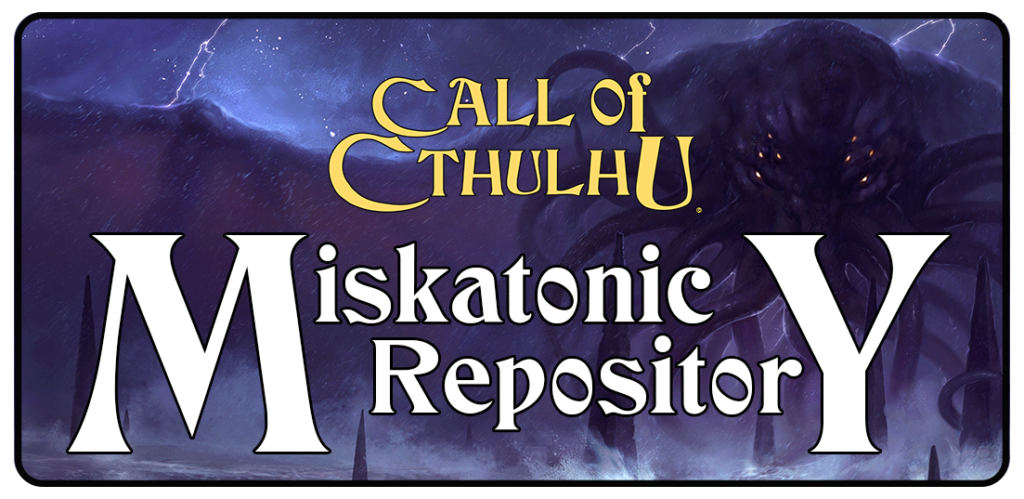
You’ll find oodles of things there, often priced Pay What You Will – or even free!
Some things that might catch your eye include:
- Additional scenarios or grand campaigns
- Scenarios in a variety of settings (1920s, modern day, etc.)
- Resources in various languages (there is content from across the globe)
- Pre-made character sheets
We also released one of our modules there titled “The Mask of the Black Sun” that’s a good entry point for players who might have only played 1-2 games beforehand (or none, even).
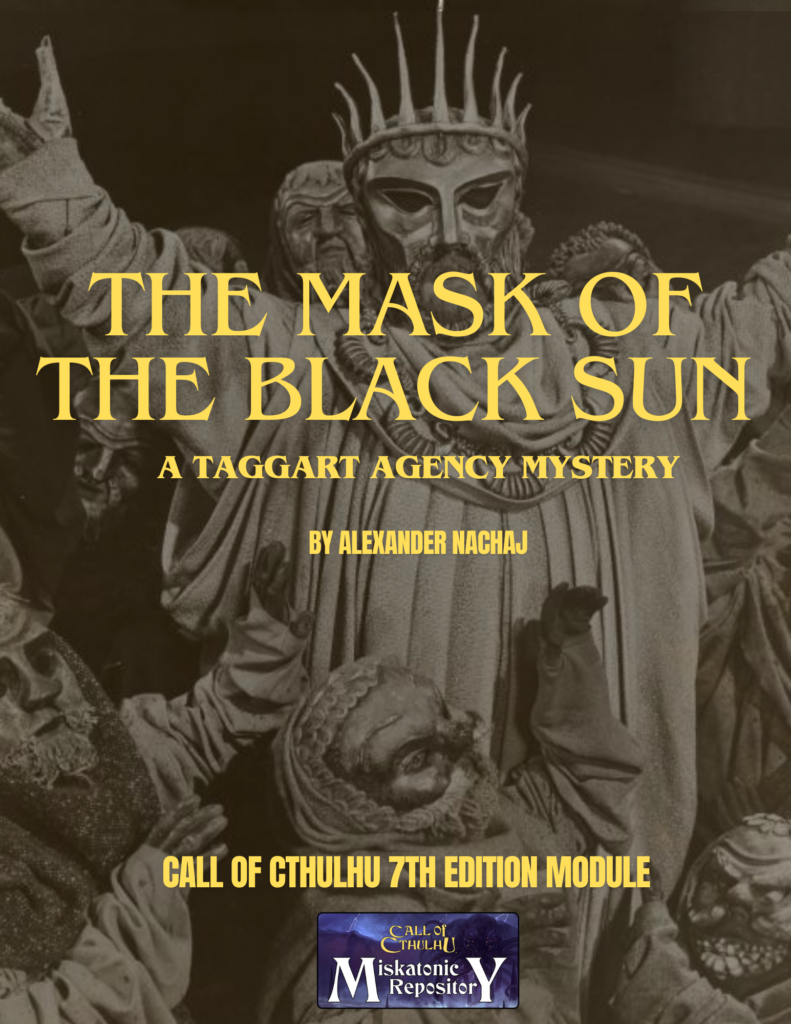
Frequently Asked Questions about Call of Cthulhu RPG
When does Call of Cthulhu take place?
Typically, most scenarios take place in New England or similar areas both real and fictional (such as England proper, Canada, and the like). Because it’s an expansive game system, you can find scenarios set pretty much anywhere, ranging from Japan, the Arctic, or even an ocean liner.
How does Call of Cthulhu work?
Call of Cthulhu uses the Basic Roleplaying System (BRP) that revolves around using D100s to resolve actions or events.
Does Call of Cthulhu have combat?
While there is combat in the game system, it is often secondary. Players take on the role of Investigators who rarely come from a combat training background (unless they were ex-soldiers or ex-cops), and typically characters hail from professions ranging from journalists, to historians, to archaeologists, and psychotherapists. This often lack of formal training makes any combat encounter
Which edition of Call of Cthulhu RPG is the best?
7th Edition is the current and only supported edition for the game. As most of the resources are currently available for this version, we strongly recommend it’s the one you dive into.
